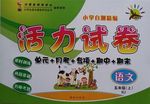

Passage one(The only way to travel is on foot)
The past ages of man have all been carefully labeled by anthropologists. Descriptions like ‘ Palaeolithic Man’, ‘Neolithic Man’, etc., neatly sum up whole periods. When the time comes for anthropologists to turn their attention to the twentieth century, they will surely choose the label ‘Legless Man’. Histories of the time will go something like this: ‘in the twentieth century, people forgot how to use their legs. Men and women moved about in cars, buses and trains from a very early age. There were lifts and escalators in all large buildings to prevent people from walking. This situation was forced upon earth dwellers of that time because of miles each day. But the surprising thing is that they didn’t use their legs even when they went on holiday. They built cable railways, ski-lifts and roads to the top of every huge mountain. All the beauty spots on earth were marred by the presence of large car parks. ’
The future history books might also record that we were deprived of the use of our eyes. In our hurry to get from one place to another, we failed to see anything on the way. Air travel gives you a bird’s-eye view of the world – or even less if the wing of the aircraft happens to get in your way. When you travel by car or train a blurred image of the countryside constantly smears the windows. Car drivers, in particular, are forever obsessed with the urge to go on and on: they never want to stop. Is it the lure of the great motorways, or what? And as for sea travel, it hardly deserves mention. It is perfectly summed up in the words of the old song: ‘I joined the navy to see the world, and what did I see? I saw the sea.’ The typical twentieth-century traveler is the man who always says ‘I’ve been there. ’ You mention the remotest, most evocative place-names in the world like El Dorado, Kabul, Irkutsk and someone is bound to say ‘I’ve been there’ – meaning, ‘I drove through it at 100 miles an hour on the way to somewhere else. ’
When you travel at high speeds, the present means nothing: you live mainly in the future because you spend most of your time looking forward to arriving at some other place. But actual arrival, when it is achieved, is meaningless. You want to move on again. By traveling like this, you suspend all experience; the present ceases to be a reality: you might just as well be dead. The traveler on foot, on the other hand, lives constantly in the present. For him traveling and arriving are one and the same thing: he arrives somewhere with every step he makes. He experiences the present moment with his eyes, his ears and the whole of his body. At the end of his journey he feels a delicious physical weariness. He knows that sound. Satisfying sleep will be his: the just reward of all true travellers.
1、Anthorpologists label nowaday’s men ‘Legless’ because
A people forget how to use his legs.
B people prefer cars, buses and trains.
C lifts and escalators prevent people from walking.
D there are a lot of transportation devices.
2、Travelling at high speed means
A people’s focus on the future.
B a pleasure.
C satisfying drivers’ great thrill.
D a necessity of life.
3、Why does the author say ‘we are deprived of the use of our eyes’ ?
A People won’t use their eyes.
B In traveling at high speed, eyes become useless.
C People can’t see anything on his way of travel.
D People want to sleep during travelling.
4、What is the purpose of the author in writing this passage?
A Legs become weaker.
B Modern means of transportation make the world a small place.
C There is no need to use eyes.
D The best way to travel is on foot.
5. What does ‘a bird’s-eye view’ mean?
A See view with bird’s eyes.
B A bird looks at a beautiful view.
C It is a general view from a high position looking down.
D A scenic place.
1---5 AACDC
文章以因果写作方法,写出了由于种种现代化交通设施、人们不需用脚走路,甚至也不需要用眼看景,出门就坐汽车、公交车、地铁、飞机……,车、机速度飞快,外边的景物难以看清,最终导致人们忘记用脚、用眼成为“无脚之人”。一切都经历不到。作者建议最佳的旅游方法是徒步――经历现实。
1.A 人们忘了用脚。答案在第一段:人类学家把以往年代的人们分别标上旧石器时代、新石器时代人,等等。干脆利落地总结了一个时期。当他们转向20世纪,他们肯定会标上“无脚的人”。因为在20世纪,人们忘了如何用脚走路。男人女人早年外出就坐车、公共汽车、火车。大楼里由电梯、自动扶梯,不需要人们走路。即使度假期间,他们也不用脚。他们筑有缆车道、滑雪载车和路直通山顶。所有的风景旅游区都有大型的汽车停车场。
B 人们喜欢汽车、公交车、火车等。 C 电梯、自动扶梯制止人们走路。 D 有许多交通运输工具。
2.A 人们的注意力在未来。见最后一段第一句话:当你高速旅行,现在等于零,你主要生活在未来,因为你大部分时间盯在前面到达的某个地方。真到了,又没有意义了,你还要再向前进。
B 是一种欢乐。 C 满足司机强烈的渴望。第二段中提及死机醉心于开车、不停车但不是快速前进着眼于未来。 D 生活的需要。这一条在第一段中提及这种情况是因为他们那异常的生活方法强加给时代的居民。这是指不用脚走路,而用一切代步器――交通运输工具,不是开快车。
3.C 人们在旅行途中什么都见不到。答案在第二段,由一地转向另一地,路上你什么都没有见到。乘飞机你只能俯视世界,火车,汽车,只见外界朦胧景象掠过窗子。海上旅游,只见到海。“我到过那里”此话含义就是“我以一小时一百英里在去某某地方时经过那里”。正因为如此,作者指出将来的历史书上会记录下:我们被剥夺了眼睛的应用。
A 人们不愿用眼睛。 B 在高速旅行中,眼睛没有用了。 D 旅行中,人们想睡觉。
4.D 旅行的最佳方式是走路。文章第一段、第二段分别讲述了旅行可不用脚、不用眼等情况。第三段,在讲述了人们只知向前向前,一切经历都停滞,现实不再是现实,还不如死的好。而用脚走路的旅行者总是生活再现实,对他来说旅行和到达是一回事,他一步一步走到某地,他用眼睛、耳朵,以至整个身体去体验现在时刻、旅行终点,他感到全身舒坦愉悦的疲劳,美美享受满足的酣睡;一切真正旅行者的真实报偿。这一段就是作者写文章的目的――走路是旅行的最佳方式。
A 脚变得软弱无力。 B 现代交通工具把世界变小。 C 没有必要用眼睛。
5.C 从高出向下看的景致:俯视。
A 用鸟的眼睛看景点。 B 鸟在看美景。 D 风景点。


 激活思维优加课堂系列答案
激活思维优加课堂系列答案 活力试卷系列答案
活力试卷系列答案 课课优能力培优100分系列答案
课课优能力培优100分系列答案科目:高中英语 来源: 题型:阅读理解
Happiness is associated with smiling. But do we always smile when we are happy?
During the Olympic Games in Barcelona in 1992, Spanish researchers analyzed the facial expressions of 22 gold medal winners at the medal ceremonies. The researchers were surprised to see that these medal winners didn't smile very much. In fact, throughout the different medal ceremonies, they only smiled about 10% of the time. But during the brief moment when the gold medal was put around their neck, the medal winners grinned (露齿笑) about 70% of the time.
The researchers interviewed the winners they had watched to find out how they felt. All the winners interviewed said that they felt intensely(强烈的)happy throughout the ceremony.
Though they were profoundly(衷心地)happy, they didn't smile a great deal. The researchers concluded that smiling was not the automatic expression of happiness. The fact that the gold medal winners smiled much more when they were actually being given their medals could be explained because, according to the Spanish researchers, smiling was a form of communication between individuals. The happy athletes were smiling at the people who were giving them gold medals. Perhaps we can support the findings of the Spanish researchers by making some observations of our own behaviors. When we are all alone, for example, do we smile at ourselves when we are happy? Probably not very often. If someone greets us with a friendly smile, do we respond with a smile? Yes, we probably do. When a friend gives us a beautiful present, will we show our appreciation with a smile? Yes, of course. But if we are sitting alone watching television, do we smile at a commentator (讲解员) who smiles at us?
How much of the time did the gold medal winners smile during the medal ceremonies?
A. 10%. B. 70%. C. 22%. D. 92%.
According to the passage, when did the athletes smile quite a lot?
A. Throughout the medal ceremony.
B. When they were informed of their success.
C. When the gold medal was put around their neck.
D. When their national flag was raised.
According to the passage, on which of the following occasions would we most probably NOT smile?
A. When we are sitting alone watching TV.
B. When someone greets us with a friendly smile.
C. When a friend gives us a beautiful present.
D. When we feel intensely happy.
According to the passage, which of the following statements is TRUE?
A. The gold medal winners were too nervous that they would hardly smile at the medal ceremonies.
B. People will always smile automatically when they feel happy.
C. Smiling is a way of communication.
D. When the gold medal was put around their neck, the gold medal winners were smiling at the audience but not at those who gave the medal.
查看答案和解析>>
科目:高中英语 来源:2010-2011浙江瑞安中学高二下学期期中考试英语试卷 题型:阅读理解
The United States is one of the few countries in the world that has an official day on which fathers are honored by their children.On the third Sunday in June, fathers all across the United States are given presents, treated to dinner or otherwise made to feel special.
However, the idea for creating a day for children to honor their fathers began in Spokane, Washington.A woman by the name of Sonora Smart Dodd thought of the idea for Father’s Day while listening to a Mother’s Day sermon in 1909.Having been raised by her father, Henry Jackson Smart, after her mother died, Sonora wanted her father to know how special he was to her.It was her father that made all the parental sacrifices(牺牲) and was, in the eyes of his daughter, a selfless and loving man.Sonora’s father was born in June, so she chose to hold the first Father’s Day celebration in Spikane, Washington on the 19th of June, 1910.
In 1924 President Calvin Coolidge declared the third Sunday in June as Father’s Day.Roses are the Father’s Day flowers: red to be worn for a living father and white if the father has died.
When children can’t visit their fathers or take them out to dinner, they send a greeting card.Traditionally, fathers prefer greeting cards that are not too sentimental(伤感的).Most greeting cards are too special so fathers laugh when they open them.Some give heartfelt thanks for being there whenever the child need Dad.
【小题1】.The United States is special in Father’s Day because ______.
| A.many people celebrate the day | B.only America celebrates the day |
| C.America makes it an official day | D.all men are honored in America |
| A.Sonora honored her father on her father’s birthday |
| B.Sonora’s birthday was June 19 |
| C.it was decided by the president at that time |
| D.her mother died on June 19 |
| A.4 | B.10 | C.14 | D.24 |
| A.people will wear the same flowers to honor their fathers |
| B.only daughters wear red flowers to honor their fathers |
| C.children must go home to honor their fathers |
| D.fathers are often honored in different ways |
| A.was very kind to anyone | B.was the first father honored in 1924 |
| C.did a lot for his daughter | D.always help others by giving money |
查看答案和解析>>
科目:高中英语 来源:2013届江西省南昌10所省重点中学高三第二次模拟突破冲刺英语卷(八)(带解析) 题型:阅读理解
BEIJING - China's railway rates for freight and passenger transport will continue to be set by the government, announced a senior official with the National Development and Reform Commission (NDRC), China's top economic planner, on Friday.
Cao Changqing, head of the NDRC's department of price, said that the country will continue to implement government-set or government-guided prices for the railway sector after the China Railway Corporation (CRC), a State-owned company that takes over the commercial functions of the former Ministry of Railways (MOR), went into business on March 17.
Cao said the railway sector, constituting China's main public transport facilities, is a key basic industry. Its pricing scheme is concerned with both the sector's normal operation and development, as well as the daily traveling and vital interests of the general public.
The state will be very cautious in making any price adjustment in the railway sector, taking into account various factors including operation, construction, public acceptance and coordinated development with other modes of transport, according to the NDRC official.
Under Chinese law and regulations, hearings will be held before adjustments in the basic passenger train ticket fare, Cao said.
In China's latest railway reform, endorsed at the just-concluded annual session of the country's top legislature, the former MOR was dismantled into two parts, with the newly created CRC carrying out business functions and a state railways administration fulfilling administrative functions.
【小题1】What does this passage mainly talk about?
| A.China’s railway pricing scheme unchanged |
| B.A State-owned company takes over the commercial functions of MOR. |
| C.China’s latest railway reform |
| D.The former MOR was divided into two parts |
| A.There will be adjustment in the basic passenger train ticket |
| B.China’s railway rate for passenger will not be changed forever |
| C.Hearing will be held before adjustment of railway price |
| D.The price adjustment are being considered |
| A.The public will be very curious about the price adjustment |
| B.Various factors are taken into account by the state before adjustment |
| C.Public acceptance is the most important factor |
| D.NDRC should coordinate railway development with other modes of transport |
| A.The public request it |
| B.Under Chinese laws and regulations |
| C.According to the order from leaders |
| D.Because it will cause a lot of problem |
| A.News | B.Entertainment | C.Society | D.Financial |
查看答案和解析>>
科目:高中英语 来源:2012-2013学年江西省高三第二次模拟突破冲刺英语卷(八)(解析版) 题型:阅读理解
BEIJING - China's railway rates for freight and passenger transport will continue to be set by the government, announced a senior official with the National Development and Reform Commission (NDRC), China's top economic planner, on Friday.
Cao Changqing, head of the NDRC's department of price, said that the country will continue to implement government-set or government-guided prices for the railway sector after the China Railway Corporation (CRC), a State-owned company that takes over the commercial functions of the former Ministry of Railways (MOR), went into business on March 17.
Cao said the railway sector, constituting China's main public transport facilities, is a key basic industry. Its pricing scheme is concerned with both the sector's normal operation and development, as well as the daily traveling and vital interests of the general public.
The state will be very cautious in making any price adjustment in the railway sector, taking into account various factors including operation, construction, public acceptance and coordinated development with other modes of transport, according to the NDRC official.
Under Chinese law and regulations, hearings will be held before adjustments in the basic passenger train ticket fare, Cao said.
In China's latest railway reform, endorsed at the just-concluded annual session of the country's top legislature, the former MOR was dismantled into two parts, with the newly created CRC carrying out business functions and a state railways administration fulfilling administrative functions.
1.What does this passage mainly talk about?
A.China’s railway pricing scheme unchanged
B.A State-owned company takes over the commercial functions of MOR.
C.China’s latest railway reform
D.The former MOR was divided into two parts
2.What does Cao mean according to the passage?
A.There will be adjustment in the basic passenger train ticket
B.China’s railway rate for passenger will not be changed forever
C.Hearing will be held before adjustment of railway price
D.The price adjustment are being considered
3.What can we infer from the fourth paragraph?
A.The public will be very curious about the price adjustment
B.Various factors are taken into account by the state before adjustment
C.Public acceptance is the most important factor
D.NDRC should coordinate railway development with other modes of transport
4.Why will hearings be held before adjustments in the basic passenger train ticket fare?
A.The public request it
B.Under Chinese laws and regulations
C.According to the order from leaders
D.Because it will cause a lot of problem
5.We would most probably read this passage on the newspaper about________
A.News B.Entertainment C.Society D.Financial
查看答案和解析>>
科目:高中英语 来源:2010-2011学年江西省南昌市高三10月月考英语卷 题型:阅读理解
Happiness is associated with smiling. But do we always smile when we are happy?
During the Olympic Games in Barcelona in 1992, Spanish researchers analyzed the facial expressions of 22 gold medal winners at the medal ceremonies. The researchers were surprised to see that these medal winners didn't smile very much. In fact, throughout the different medal ceremonies, they only smiled about 10% of the time. But during the brief moment when the gold medal was put around their neck, the medal winners grinned (露齿笑) about 70% of the time.
The researchers interviewed the winners they had watched to find out how they felt. All the winners interviewed said that they felt intensely(强烈的)happy throughout the ceremony.
Though they were profoundly(衷心地)happy, they didn't smile a great deal. The researchers concluded that smiling was not the automatic expression of happiness. The fact that the gold medal winners smiled much more when they were actually being given their medals could be explained because, according to the Spanish researchers, smiling was a form of communication between individuals. The happy athletes were smiling at the people who were giving them gold medals. Perhaps we can support the findings of the Spanish researchers by making some observations of our own behaviors. When we are all alone, for example, do we smile at ourselves when we are happy? Probably not very often. If someone greets us with a friendly smile, do we respond with a smile? Yes, we probably do. When a friend gives us a beautiful present, will we show our appreciation with a smile? Yes, of course. But if we are sitting alone watching television, do we smile at a commentator (讲解员) who smiles at us?
How much of the time did the gold medal winners smile during the medal ceremonies?
A. 10%. B. 70%. C. 22%. D. 92%.
【小题2】According to the passage, when did the athletes smile quite a lot?
A. Throughout the medal ceremony.
B. When they were informed of their success.
C. When the gold medal was put around their neck.
D. When their national flag was raised.
【小题3】 According to the passage, on which of the following occasions would we most probably NOT smile?
A. When we are sitting alone watching TV.
B. When someone greets us with a friendly smile.
C. When a friend gives us a beautiful present.
D. When we feel intensely happy.
【小题4】According to the passage, which of the following statements is TRUE?
A. The gold medal winners were too nervous that they would hardly smile at the medal ceremonies.
B. People will always smile automatically when they feel happy.
C. Smiling is a way of communication.
D. When the gold medal was put around their neck, the gold medal winners were smiling at the audience but not at those who gave the medal.
查看答案和解析>>
湖北省互联网违法和不良信息举报平台 | 网上有害信息举报专区 | 电信诈骗举报专区 | 涉历史虚无主义有害信息举报专区 | 涉企侵权举报专区
违法和不良信息举报电话:027-86699610 举报邮箱:58377363@163.com